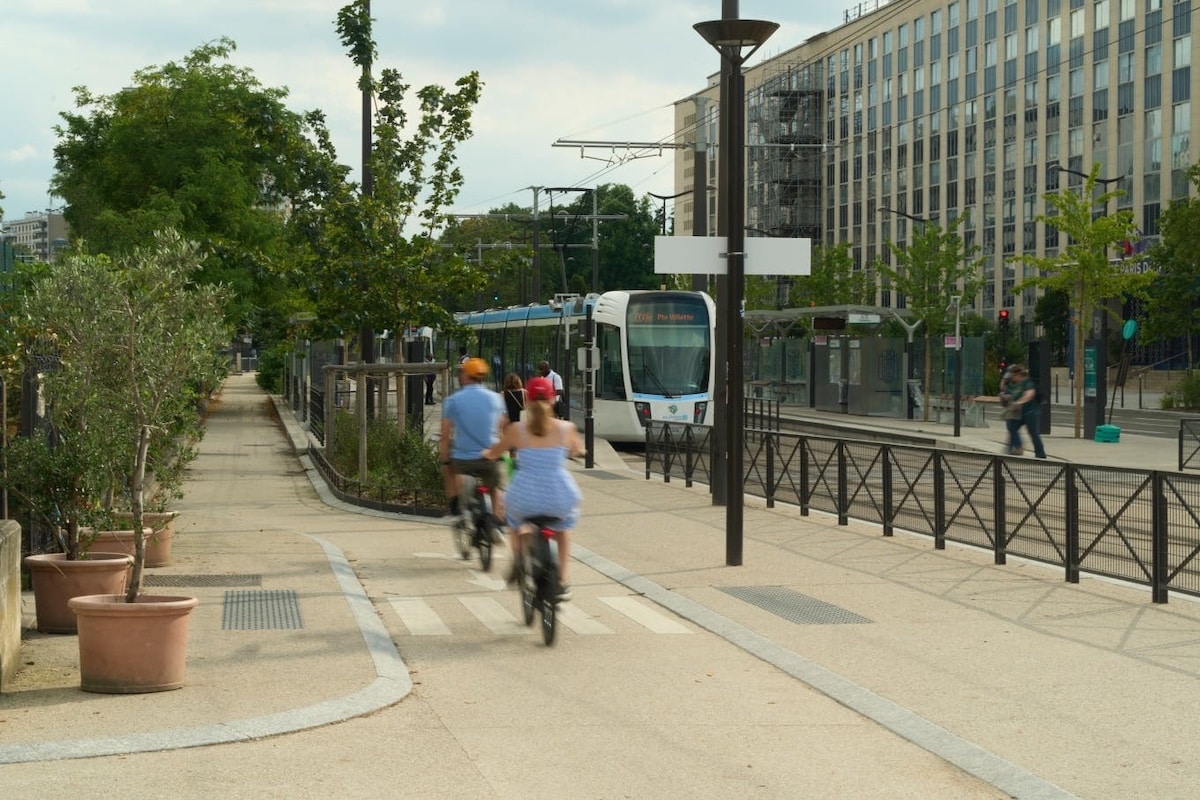Île-de-France: What’s Missing from the 2030 Mobility Plan

The Île-de-France Region has adopted its major “Mobility Plan 2030,” a greenwash over the problems.
Officially, this plan is meant to make mobility in Île-de-France “sustainable” and “inclusive.” In practice, it illustrates a well-known drift: reducing the future of transport to an accounting exercise of emissions, without ever confronting the realities experienced by users. Behind the polished communication and sophisticated environmental simulations, no answers are offered to the network’s structural problems.
The document highlights a set of virtuous targets: -26% greenhouse gas emissions, transformed air quality, tripling the number of bicycle trips, -15% motorized journeys… Very well. But a mobility plan is not reduced to a list of climate indicators. It must ensure that transport actually works. And here, there is radio silence.
And a plan to live better?
At no point does the Plan address what Île-de-France residents experience every day: repeated delays, cancelled trains, infrastructure failures, chronic overcrowding. Punctuality — the primary quality criterion for users — is nowhere to be found. Nothing either on the reliability of rolling stock, nor on the real capacity of lines already on the verge of collapse.
Even more troubling, the chapter on “road safety” is limited to reducing fatalities, without addressing safety within the transport systems themselves, while assaults, incivilities and harassment are exploding in some areas. The human aspect, despite being central, disappears in favor of a strictly environmental approach.
As for accessibility, crucial in an ageing region — a topic raised upstream in demographic projections — it is never treated as an emergency. Nothing on ill-suited platforms, stations still unusable for people with reduced mobility, or buses where boarding remains an obstacle course.
You might be interestedin this article:
The Mobility Plan 2030 claims an “inclusive mobility.” But how can you talk about inclusion when you ignore the most vulnerable groups? How can you speak of the future when you refuse to look at the network’s current shortcomings?
By turning transport into a mere ecological variable, the Region signs a plan that bypasses the essential: delivering a dignified, reliable and accessible service. An incomplete plan, and profoundly disconnected from the daily life of Île-de-France residents.
ALSO READ: Is the Paris Metro finally accessible to people with disabilities?
This page is translated from the original post "Île-de-France : les oublis du Plan des Mobilités 2030" in French.
We also suggestthese articles:
Also read






